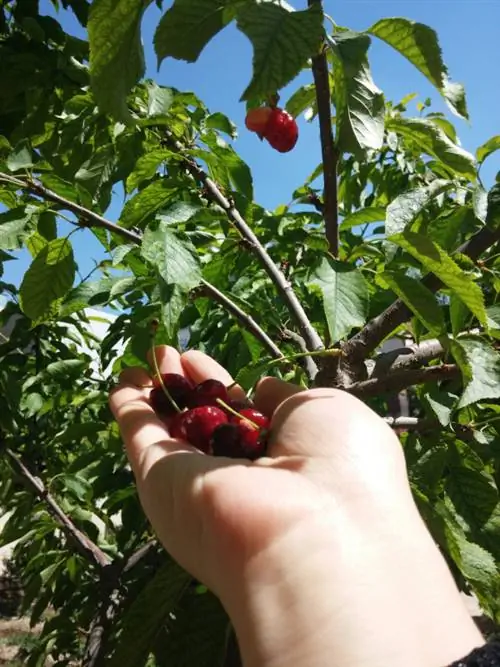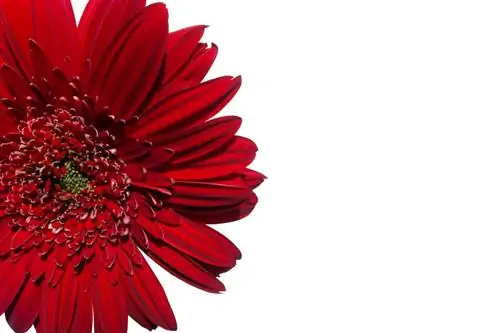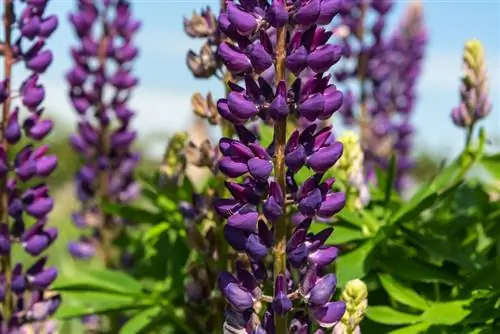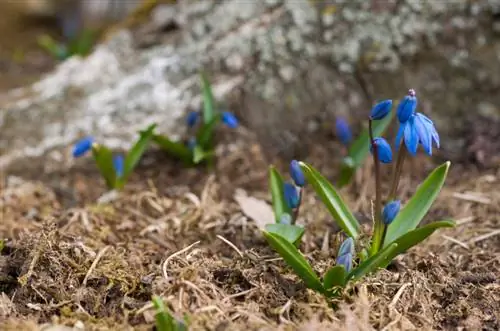- Author admin leonars@hobbygardeners.com.
- Public 2023-12-16 16:46.
- Last modified 2025-01-23 11:20.
Anyone who sees the fruits of the bird cherry for the first time will probably describe them as poisonous and leave them as a source of food for the birds. But are they actually poisonous? And what about the other parts of the plant?
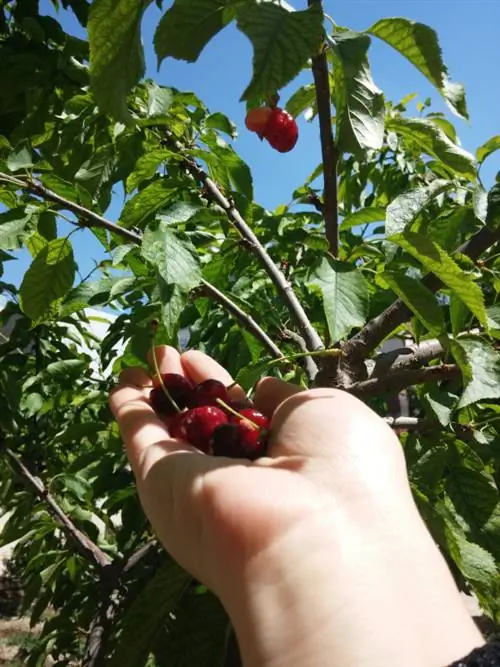
Is the bird cherry poisonous?
The bird cherry is partly poisonous: bark, wood, flowers, leaves and seeds contain toxic cyanogenic glycosides. However, the pulp is edible and can be used for juices, liqueurs, jams, jellies or for dyeing wool.
Bark, wood, flowers, leaves and seeds are poisonous
The bird cherry is partly poisonous. Their bark and seeds in particular contain high doses of cyanogenic glycosides. These include amygdalin and purasin, among others. These decompose into bitter almond oil and hydrogen cyanide. Both substances are considered toxic to humans and animals.
The wood, leaves and flowers of the bird cherry are also poisonous. Only the web moth is not impressed by this
But the bird cherry is fair: its poisonous plant parts smell strong and unpleasantly putrid and vinegary. They are less tempting to eat. For this reason, poisoning with these parts of the plant is unlikely. They also taste extremely bitter, which should give a warning signal to the sense of taste.
The pulp is edible
However, the pulp of the bird cherry is edible. It's worth trying the pulp once. Not necessarily raw, as it is not a tasty delicacy when raw. But when processed it can be tasty. The fruits are suitable for: B. for:
- Juices
- Liqueur
- Jam
- Jelly
- for dyeing wool
The fruits ripen from July and can be harvested until September. They are small, spherical, shiny and black in color. The poisonous seed contained is large and the probability of accidentally swallowing it is low.
Tips & Tricks
The pulp of the bird cherry fruit tastes less delicious due to its high bitter content. But it has the advantage that it has an antipyretic effect and helps against rheumatism.

